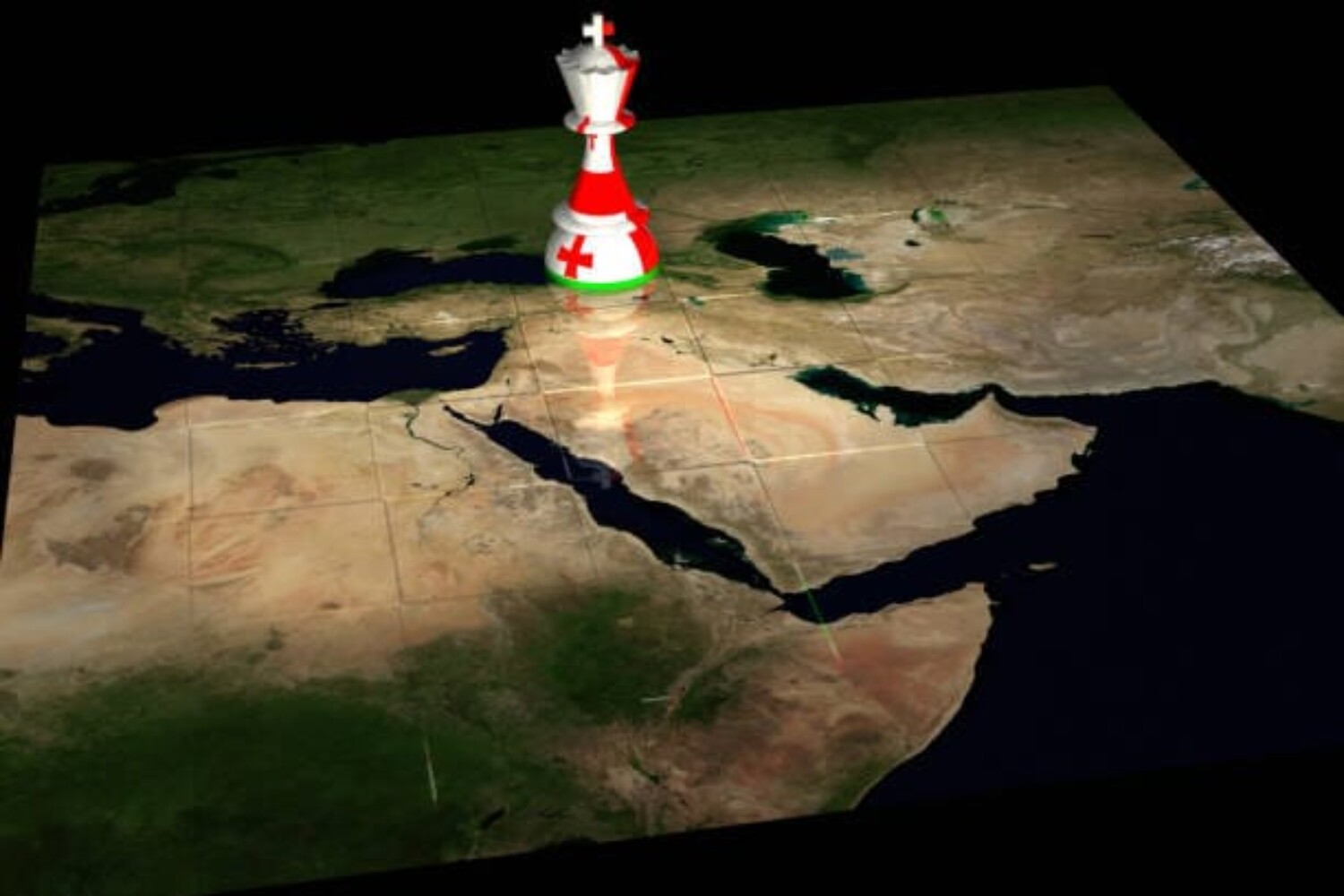The results of the 2024 parliamentary elections have determined Georgia’s new geopolitical position. At this stage, according to official data, the anti-Western “Georgian Dream” government, which favors one-party rule, officially retained its parliamentary majority for a fourth term. A significant part of society is convinced that, minus the deployment of election fraud techniques, the opposition parties could defeat the ruling party. However, despite this assumption, in the absence of the necessary evidence, the power to govern the state remains for the time being in the hands of “Georgian Dream”.
The multi-vector foreign policy enshrined in GD’s rhetoric has been a comfortable strategy for the party. In parallel to weakening the campaign for Euro-Atlantic integration Georgian Dream has tried to find allies among authoritarian players such as China, Iran, and Belarus. Most importantly, within this approach, a kind of “normalization” policy with Russia remained on the agenda, reflected in the activation of direct ties with Moscow (direct flights, visa-free regime, increased migration).
However, the 54% of the electorate’s vote that Georgian Dream declared failed to win it any congratulations from its Western partners, and some Western states have already announced the suspension of cooperation. So, we must assume that Georgia will remain in a kind of “grey zone” where it has no clear friends.
In such circumstances, the question is what does this means for Georgia and to what extent does the country have the resources and prospects to deal with major threats to its strategic interests.
What Does the “Grey Zone” Mean and What Will It bring to the Georgia Under GD?
In the context of the geopolitical realignment following Russia’s recent invasion of Ukraine, the West sees Georgia as being in a kind of “grey zone”: while the country is still struggling to move out of Russia’s sphere of influence and towards Euro-Atlantic integration, it has yet to clearly define which in camp it will be following this realignment. In early 2024, the Munich Security Conference report stated that the “grey zone” has different shades for different countries. It seems that by the end of 2024, under the new “Georgian Dream” government, Georgia’s geopolitical place will be even moredeeply grey and uncertain.
The kind of multi-vector foreign policy acceptable to Georgian Dream is one that forms a comfort zone in which, despite its anti-Western moves, the party manages to maintain a certain level of support in pro-European society. This, despite the declining domestic backing shown in public surveys. It would be logical if Georgian Dream, at least in the first years of its rule, tried to maintain this comfort zone, wanting to avoid explicitly choosing between globally established camps so as not to create any threat to its power. However, it is likely that the collective West will assign Georgia a new position with three key points: stopping the process for Georgia’s European integration in Brussels, fundamentally revising the strategic partnership with the US in Washington, and regarding Georgia as a de facto ally of Moscow.
Suspension of European Integration
One of the main repercussions of the strategy of preserving Georgia in “grey zone” is the suspension of European integration and the loss of the EU as one of its main partners. This will lead to the disappearance of important forms of cooperation. The EU will keep its eyes on Georgia, will remain active on certain projects related to Black Sea security or other regional issues.
However, the fact is that the country will no longer receive practical benefits from the enlargement process (in the form of financial packages) and will no longer be considered part of the Western geopolitical camp.
Seeking to avoid taking the blame, Georgian Dream created the concept of “two EUs” – a “noble” and an “dishonorable” Union – as a mechanism to enable the party to successfully ignore criticism from Brussels of its anti-democratic behavior. It took Hungary as its role model for a so-called “noble EU”. The Hungarian Prime Minister Viktor Orbán was the first leader to visit Georgia after the elections. However, according to the official position of the EU, Orbán did not represent the EU during this visit. Accordingly, Brussels’ positioning in this regard also fails to help the Georgian Dream government formally maintain positive political ties with the EU.
Announced “Reset” With the United States
Georgia’s remaining in the “grey zone” will be sharpened by relations between Georgia and the United States. With regard to future relations between the new Georgian Dream government and the new US administration the prospects for resetting Georgian-US relations are vague. For a start, there is the history of confrontation between the US and Bidzina Ivanishvili personally, which was reflected in the disruption of important high-level meetings. The contrasts between the Trump administration’s isolationist stance and the Georgian Dream’s multi-vector foreign policy visions do not create expectations that relations within the framework of a strategic partnership could expand and, for example, warm to the level of free trade, as the Georgian government has announced. On the other hand, the terms of the MEGOBARI Act and the Georgian People’s Act (GPA), which provide for personal sanctions for relevant Georgian officials, will be actively implemented.
At this stage, Washington has not given unequivocal recognition to Georgian Dream, which was clearly demonstrated in Anthony Blinken’s statement.
Against this background, a notable threat for Georgia remains a sharp contraction in the partnership. This is reflected not only in personal sanctions but also in the reduction or termination of national programs, such as financial government assistance or military training.
Accordingly, the “reset” of relations with the US in this mode, which the Georgian Dream often talks about, could be the loss of its largest and most important strategic partner.
Strategic Proximity to Russia: Courage for New Ideas?
In a scenario where the Georgian Dream wants to remain in the “grey zone”, it will be important for the party to continue a so-called normalization policy with Russia, which has been reflected in various processes of rapprochement in recent years. Russia is one of those countries where the election results officially announced by the Central Election Commission have been quickly welcomed by well-known propagandists. That in turn means that for the Kremlin, Georgian Dream is a government in its own backyard which it finds comfortable, and one that is unlikely to create any new headaches.
Even if Georgian Dream does not dare to take such radical steps with Russia as working on restoring diplomatic relations, the party may find it easy to diversify the formats of cooperation with Kremlin. For example, remaining in the “grey zone” will give Tbilisi more courage to resume discussions about joining the 3+3 format, and even accept such an audacious offer from the propagandist Dugin as joining the BRICS. In turn, these developments would will weaken Georgia’s resilience towards Russian hybrid threats, which would give Georgian Dream even more tools to justify its conformist approaches.
The “Grey Zone” of Comfort for the New Geopolitics of “Georgian Dream”
If, after the 2024 parliamentary elections, Georgia finally moves into a geopolitical “grey zone” where the country has no clear allies, this may be a comfortable scenario for the Georgian Dream. However, such a place leaves the state’s interests exposed to a number of risks.
The current Georgian government cannot receive support from such important partners as the European Union and the United States. A small country like Georgia, with limited geopolitical resources, does not have the luxury of successfully maintaining a multi-vector foreign policy.
Accordingly, in the process of the final formation of geopolitical camps, there is a strong danger that Georgia will become more attracted to authoritarian players interested in making the country their own sphere of influence. As a result, Tbilisi under the rule of “Georgian Dream” would be forced to become increasingly dependent on unreliable undemocratic partners. The seemingly comfortable and safe multi-vector policy, in fact, leaves Georgia vulnerable to growing security risks and ex
The blog was produced with the support of the Netherlands Fund for Regional Partnerships MATRA for regional cooperation in the Eastern Partnership (EaP). The views and opinions expressed in this article are the author’s alone and do not necessarily reflect the views of the Georgian Institute of Politics and the Netherlands Fund for Regional Partnerships MATRA for regional cooperation in the Eastern Partnership (EaP).



